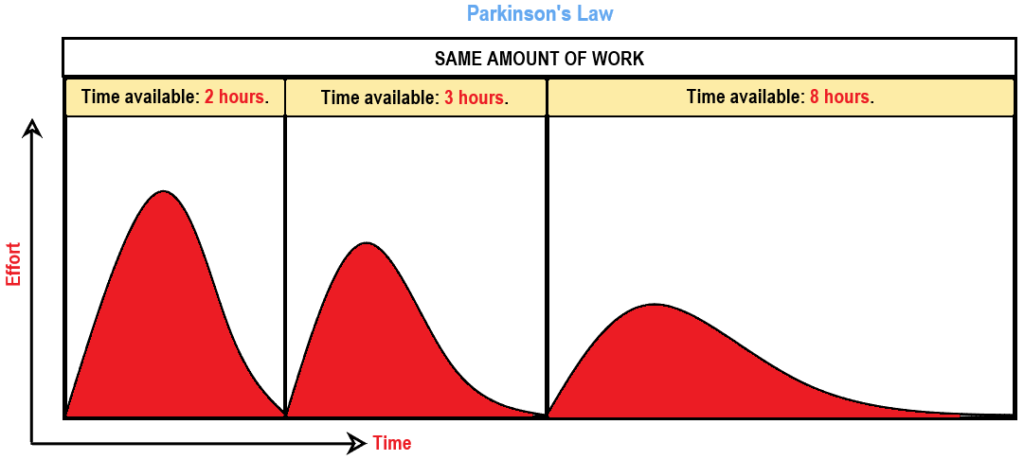Have you ever wondered why some people, despite having the same hours in the day as you, get so much more done? If you are into productivity, you might know the major reason of this to be the “Parkinson’s Law.” No, not the disease Parkinson’s, but the law. This term, “Parkinson’s Law”, was first coined by Cyril Northcote Parkinson in a humorous essay he wrote for “The Economist” in 1955.
Parkinson’s law states “work expands so as to fill the time available for its completion.”

To explain this law is rather simple, but it’s implications are hugely impactful. As shown in the picture above, time and effort are inversely proportional. What that means is that when you put more effort in getting something done, it takes less time compared to if you did the same task with less effort. That is where Parkinson’s Law comes in.
Parkinson’s law is important for how you allocate your time for tasks, i.e., how many hours you give to each task that you have to do. For example, if I had to write an essay for my English class, I could allocate it like 1 hour. And if I allocated/decided to give 1 hour to writing that essay, it would take me no less than 1 hour. Why? Because I have the time and my brain knows that I have the time.
But if I wanted to be more productive, or get more done, I would want to spend less time doing the essay. Now that I know of Parkinson’s law, even if I gave it 30 minutes, I would get the essay written anyhow.
To take another example, let’s imagine that we have a project to due tomorrow and right now is only the morning. Being a fellow procrastinator that most of us are, we would not even start doing the project until later in the evening. Then when we’d realize we have no time, we would rush and get the project done anyhow before our school time.
What I mean to imply by this example is that when we have less time, we get the work done anyhow. So the trick here is to allocate less time to tasks in the first place. If you think that you would take 1 hour to do something, give it only 30 or 40 minutes. If you think you might take around 5 hours to study for an upcoming test, give yourself only 3 hours.
In the beginning, you might feel that it’s not working, but as you keep practicing your time management keeping Parkinson’s law in mind, you will save a lot of time in the long run and you will have become a lot more productive. Give it a try, let me know if it works.
If you read this article till here, thank you so much! I sincerely hope this was helpful.
